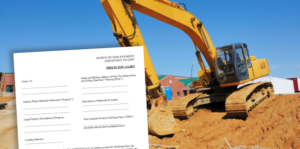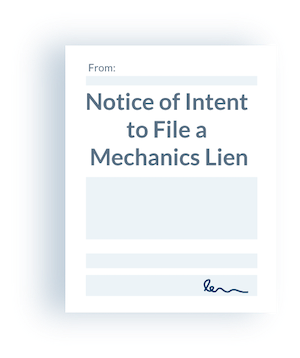
Securing your mechanics lien rights on a construction project is a process. It involves meeting certain requirements, notices, and deadlines. Louisiana’s mechanics lien laws are strict: Missing a deadline (especially the lien filing deadline) means missing out on your lien rights. However, certain parties on residential projects have an optional notice they can send. This article will provide all you need to know about using a Louisiana Final Notice of Non-Payment. This notice will not only extend your filing deadline but can also be an effective tool to help you get paid – and hopefully, avoid having to make a claim at all.
Louisiana Final Notice of Non-payment
The rules and requirements for construction notices in Louisiana changed at the beginning of 2020. The final notice now operates is as an optional notice of intent to lien, but with an added twist. It also serves as a lien extension as well. Louisiana’s statute governing Final Notices of Nonpayment is La. Rev. Stat. §4822(D); which states:
If before the expiration of the period provided in Subsection A of this Section and at least 10 days before filing his statement of claim or privilege under R.S. 9:4802, in connection with a residential work for which a timely notice of contract was not filed gives notice of nonpayment to the owner, setting forth the amount and nature of the obligation giving rise to the claim and privilege, then the period in which the person is permitted to file his statement of privilege or claim shall expire seventy days after:
- The filing of a notice of termination of the work,
- The substantial completion or abandonment of the work, if a notice of termination is not filed.
Let’s break down exactly when and how to use the LA Final Notice of Nonpayment to secure payment on a construction project.
Who can use this final notice?
This notice can only be effectively used on residential construction projects when a Notice of Contract hasn’t been filed. A residential project is defined under Louisiana law as any property occupied or designed to be occupied as a single-family or double-family residence.
There are two categories of project participants that can use this notice:
- Any party who didn’t contract directly with the property owner; and
- Any material suppliers and equipment lessors who contracted directly with the property owner.
Preparing a LA Final Notice of Non-payment
Now to the meat and potatoes of this notice: Preparing the actual form. Unfortunately, the statute doesn’t provide much guidance as to what specific information should be contained. However, we recommend including all of the following information:
- Owner’s information
- Claimant’s information
- Description of the labor and/or materials provided
- Property description
- Amount of the claim
You can also download a free Louisiana Final Notice of Nonpayment form template here.
Notice must be sent at least 10 days before the filing deadline
The Louisiana Final Notice of Non-payment needs to be sent by registered or certified mail, with return receipt. This should be served at least 10 days before the deadline to file. Doing so will extend the filing period by an additional 10 days. So let’s crunch some numbers.
If no Notice of Contract was filed on the project, then the typical deadline to file is 60 days after substantial completion or abandonment of the project. Therefore, if the notice is served on time the deadline is extended to 70 days. So once the notice is served by the latest date possible, to days prior to the deadline expiration date, the lien claim must be filed within 20 days total from the notice.
Why you should send a Louisiana Final Notice of Non-Payment
As mentioned above, the Final Notice of Non-Payment serves two purposes. The first is to inform the owner that you are ready to file a mechanics lien against their property if you aren’t paid. This notice of intent function is incredibly effective to induce payment, since no one wants a lien filed against their property. The second purpose is to extend your filing deadline by a few days. Why? To give the property owner a little more time to resolve the payment problem. Any opportunity to work out the payment problem before resorting to filing a lien claim is beneficial for everyone involved! And if you and the property owner aren’t able to resolve the payment dispute, you’ll still have time to file your claim and get paid what you’ve earned.


